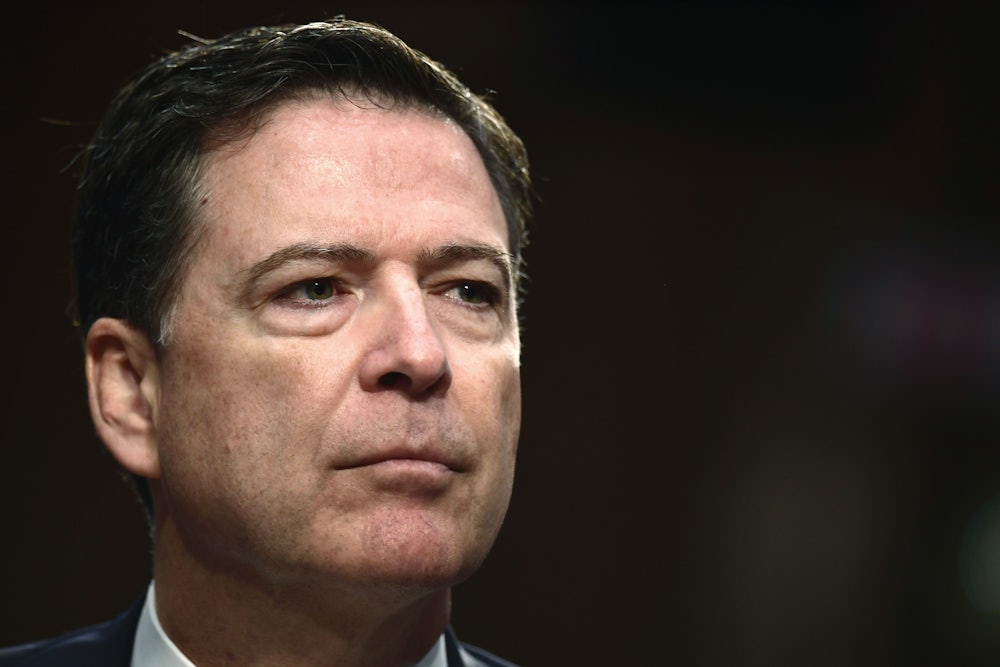Expectations for Comey’s testimony before the Senate Intelligence Committee—his first public comment since he was fired by President Donald Trump last month—could not have been higher. The event had the air of a presidential debate—albeit one that began at 10 a.m.—and was being pitched as the biggest day in D.C. since President Bill Clinton’s impeachment or Bush v. Gore.
It didn’t disappoint. Yes, there was plenty for Trump’s supporters as well as his detractors. The right is going to go haywire for the foreseeable future about Comey testifying that former Attorney General Loretta Lynch pressured him to not refer to the Clinton email investigation as an “investigation.” That Comey admitted to orchestrating the leak of his memos—and did so with the hope of triggering a special prosecutor—will also eat up air time on Fox News, and fuel the already unsettling crackdown on leaking.
DRUDGE just updated his headlines -- this is a good rundown of what narrative in pro-Trump universe will be like pic.twitter.com/BOc9264S6h
— Oliver Darcy (@oliverdarcy) June 8, 2017
But all of that is secondary. What really mattered is that Comey took a sledgehammer to the Trump administration’s narrative and made it abundantly clear that Trump tried to influence the FBI’s investigation into Michael Flynn and that he was fired because he refused to drop that investigation. (To be fair, Trump has also been very clear that he fired Comey for refusing to drop the Russia investigation.) Just as importantly, he made the case that Trump is a liar who, either through incompetence, malevolence, or self-involvement (or all three), is undermining checks and balances and that he is doing so for no other reason than to protect himself. Comey called Trump’s bluff and invited him to release any tapes he might have of their interactions.
Most importantly, though, Comey methodically made the case that Trump obstructed justice, both in their interactions and by firing him. There has been a great deal of speculation about the significance of Trump’s meeting with Comey—and the fact that Trump asked others to leave before asking him to drop the Flynn investigation. Comey declined to speculate, but he made it very, very clear that his interpretation of events was that Trump was attempting to obstruct justice. There can be no other conclusion from his statements before the Senate Intelligence Committee.
In three hours Comey dramatically raised the stakes for what is undoubtedly the highest profile investigation since Watergate. Trump (and Flynn and Jeff Sessions and anyone else who was close to the Trump campaign) should be absolutely terrified.
